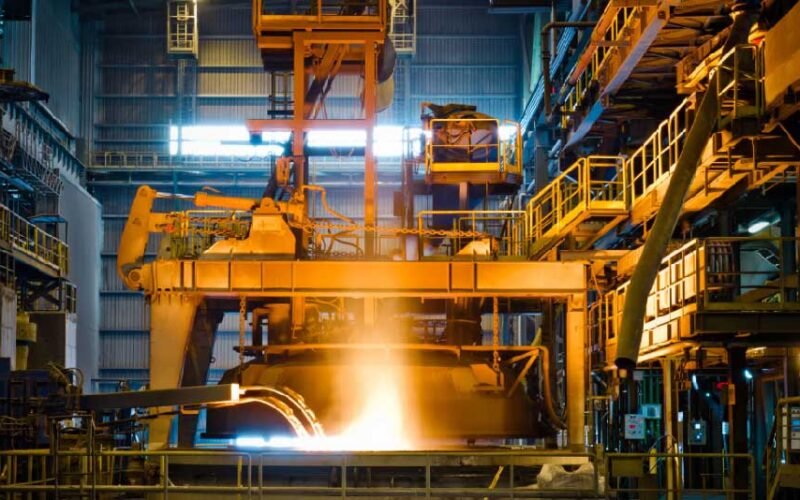Industrial automation has fundamentally transformed various manufacturing and processing sectors, bringing unprecedented efficiency, precision, and safety enhancements. In the realm of metal refining, automation plays a pivotal role in optimizing complex processes that convert raw metals into high-quality, pure commodities. Among the technologies driving these advancements, servo drives and controllers are crucial, enabling precise control over machinery and refining processes that demand exact parameters to ensure optimal output and quality.
The Importance of Automation in Metal Refining
Metal refining involves several intricate processes that refine raw ores and recycled materials into usable metals. These processes typically include melting, chemical treatments, electrolysis, and purification. Each step must be precisely controlled to ensure the purity of the final product, as even minor deviations can significantly impact the quality and properties of the refined metal.
Automation in metal refining not only enhances control but also improves the efficiency and safety of these operations. It reduces the need for human intervention in hazardous environments and enables continuous operations, which are crucial for economic viability in a sector where profit margins can often be tight.
Key Areas of Automation in Metal Refining
- Process Control Systems: Advanced computerized systems are used to monitor and control the various stages of the refining process. These systems manage temperatures, chemical levels, and other critical parameters throughout the operation. By ensuring that each process step is conducted under optimal conditions, these systems help maximize yield and product quality.
- Material Handling: Automated conveyor systems, robotic handlers, and feed systems are employed to transport raw materials, intermediate products, and finished metals within the refining facility. These automated material handling systems minimize the risk of contamination and ensure that materials are moved efficiently between different stages of the refining process.
- Quality Control: Automation extends into the quality control aspects of metal refining. Automated sampling and analysis tools continuously monitor the chemical composition and physical properties of the metal at various stages. This real-time data allows for immediate adjustments to the process, ensuring that the end product meets the required specifications.
- Safety Systems: In metal refining, where high temperatures and corrosive chemicals pose significant risks, automated safety systems are crucial. These systems monitor conditions such as gas leaks, temperature extremes, and other potential hazards. Automated emergency shutdown systems can quickly intervene in dangerous situations, enhancing worker safety and preventing catastrophic failures.
Integration of Servo Drives and Controllers
Servo drives and controllers are integral to the precision and efficiency of automated systems in metal refining. These devices provide high-precision control of motors that operate various mechanical components within the refining process. Here’s how they contribute to different aspects of metal refining:
- Precise Movement Control: In metal refining, many processes require the precise positioning of components. For example, in electrolysis operations, electrodes must be positioned accurately within the electrolyte solution to ensure efficient and uniform metal deposition. Servo drives and controllers manage the motors that adjust these electrodes, maintaining exact distances and alignments, which are critical for product quality.
- Speed and Torque Adjustment: Servo systems are capable of adjusting the speed and torque of motors to match specific process requirements. This is particularly important in operations such as the stirring of molten metal, where the speed of stirrers needs to be controlled to ensure homogenous mixing without introducing impurities.
- Enhanced Automation Integration: Servo controllers like the dkc02.3-200-7-fw can be integrated with the broader process control systems, allowing for synchronized operations across various parts of the refining process. This integration ensures that movements, speeds, and other actions are perfectly timed with process needs, optimizing the entire refining operation.
Challenges and Future Directions
While automation, including the use of servo drives and controllers, offers numerous benefits, it also presents challenges, particularly in terms of complexity and cost.
- High Initial Investment: The upfront cost of implementing advanced automation systems in metal refining can be significant. However, the long-term benefits of increased efficiency, higher product quality, and improved safety often justify the investment.
- Technical Expertise: Operating and maintaining sophisticated automation systems require a high level of technical expertise. Refineries must invest in training their workforce or hiring specialists who can manage and troubleshoot these advanced systems.
- Cybersecurity Risks: As refining processes become increasingly digital, the risk of cybersecurity threats grows. It is essential for companies to implement robust cybersecurity measures to protect sensitive process data and control systems.
Conclusion
Industrial automation, empowered by technologies such as servo drives and controllers, is reshaping the metal refining industry. By enhancing precision, efficiency, and safety, automation technologies are helping refining operations meet the demands of modern industrial production. As the industry continues to evolve, further advancements in automation will likely lead to even greater efficiencies, transforming the way metals are refined and used across various sectors.







